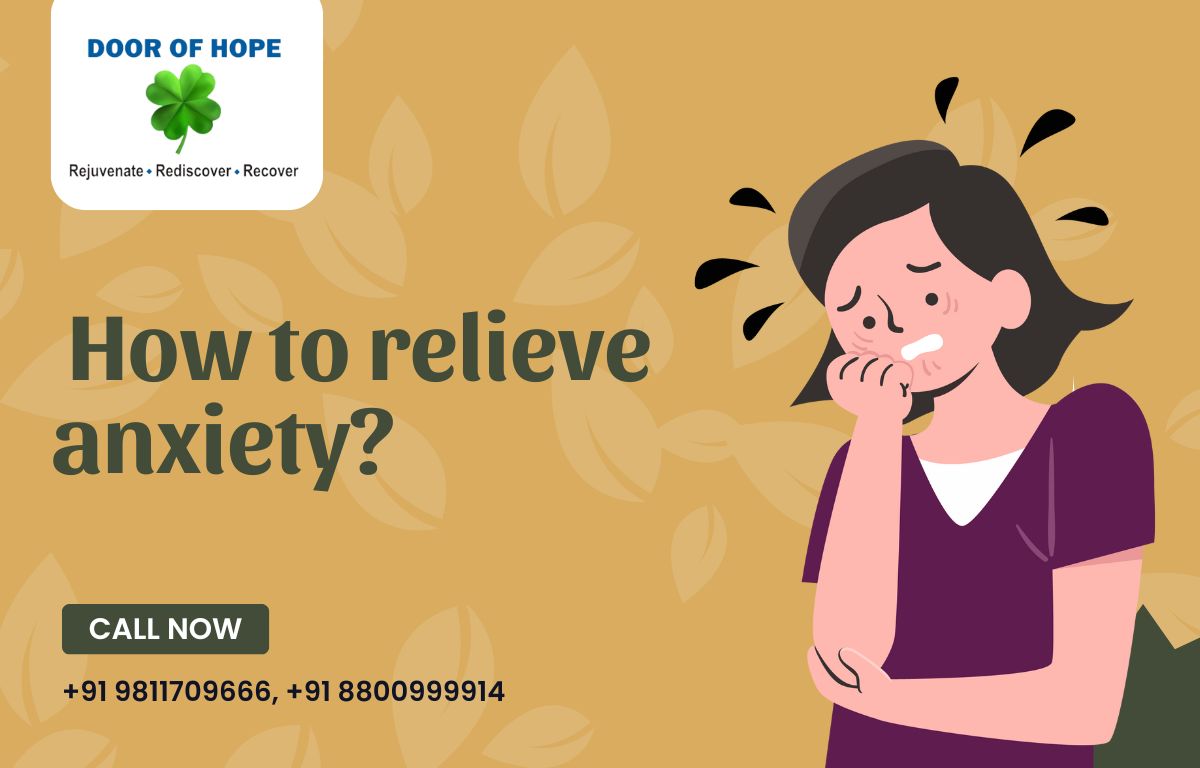Anxiety is a common experience that many of us face in our fast-paced lives. Whether it's due to work pressures, personal challenges, or other stressors, finding effective ways to relieve anxiety is essential for our overall well-being. In this article, we will explore some simple and practical strategies to help you manage anxiety and regain a sense of calmness.
Deep Breathing Techniques to Relieve Anxiety Instantly
In the hustle and bustle of our daily lives, stress and anxiety often creep in, leaving us feeling overwhelmed and tense. Fortunately, one of the simplest and most effective ways to combat these feelings is through deep breathing techniques. Deep breathing helps calm the mind and induces a physiological response that reduces stress hormones. In this section, we'll explore some easy-to-follow deep breathing exercises that you can incorporate into your routine for quick anxiety relief.1. Diaphragmatic Breathing:
Diaphragmatic breathing, also known as belly breathing, is a fundamental technique to promote relaxation. To practice this technique, find a quiet and comfortable place to sit or lie down. Place one hand on your chest and the other on your abdomen. Inhale slowly and deeply through your nose, allowing your diaphragm to expand and your abdomen to rise. Exhale slowly through your mouth, feeling your abdomen fall. Focus on making your breaths deep and rhythmic, taking your time with each inhalation and exhalation. Repeat this process for a few minutes until you feel a sense of calmness.2. 4-7-8 Breathing:
The 4-7-8 breathing technique is a simple yet powerful exercise popularized by Dr. Andrew Weil. Begin by sitting or lying down in a comfortable position. Close your eyes and take a deep breath in through your nose for a count of four. Hold your breath for a count of seven. Exhale slowly and completely through your mouth for a count of eight. This pattern constitutes one breath cycle. Repeat this cycle for four breaths initially, gradually increasing the repetitions as you become more comfortable. This technique not only promotes relaxation but also helps regulate the breath, making it an excellent tool for managing anxiety.3. Box Breathing:
Also known as square breathing, box breathing is a structured technique that focuses on equalizing the duration of each breath. Start by inhaling through your nose for a count of four. Hold your breath for another count of four. Exhale slowly through your mouth for four counts, and then pause for another count of four before beginning the cycle again. The key is to maintain a steady rhythm and ensure each phase of the breath is of equal duration. Box breathing helps bring awareness to your breath, breaking the cycle of anxious thoughts and promoting a sense of calm.4. Alternate Nostril Breathing:
This yogic breathing technique, known as Nadi Shodhana, involves breathing through alternate nostrils. Sit comfortably with your spine straight. Using your right thumb, close off your right nostril and inhale deeply through your left nostril. Close your left nostril with your right ring finger and release the right nostril, exhaling completely. Inhale through the right nostril, close it off, release the left nostril, and exhale. This completes one cycle. Continue alternating nostrils for several minutes. This technique is believed to balance the two hemispheres of the brain, promoting a sense of harmony and reducing anxiety. Deep breathing techniques are powerful tools that can be easily incorporated into your daily routine to alleviate anxiety. Experiment with different methods and find the one that resonates with you the most. Whether it's diaphragmatic breathing, 4-7-8 breathing, box breathing, or alternate nostril breathing, the key is to practice regularly and make deep breathing a habit for long-term stress management and overall well-being.Ready to dive deeper into managing anxiety? Visit our page on Anxiety Disorders for comprehensive insights and expert guidance. Take the first step towards a calmer, more peaceful life today!


